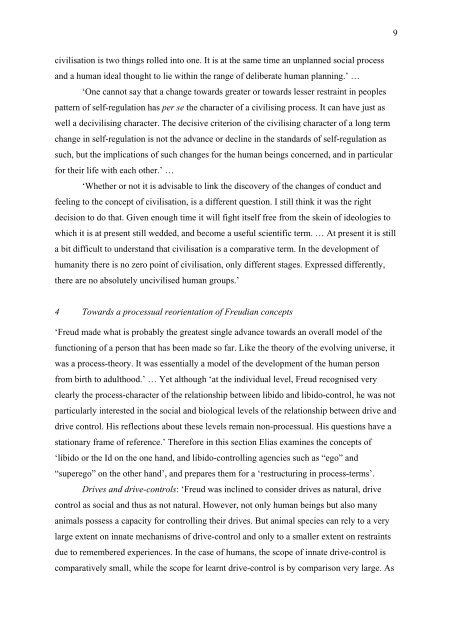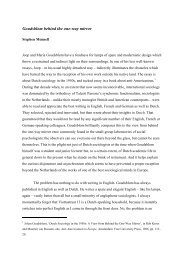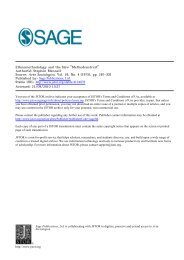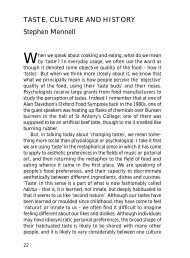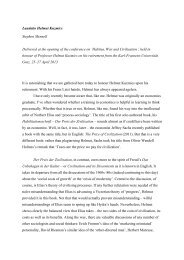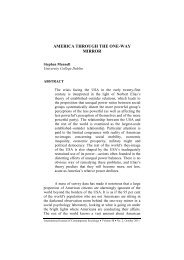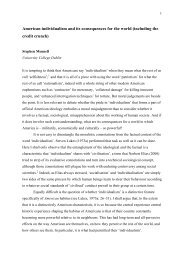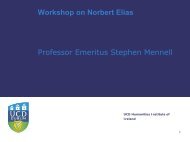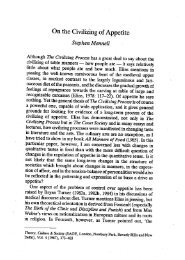paper - Stephen Mennell
paper - Stephen Mennell
paper - Stephen Mennell
You also want an ePaper? Increase the reach of your titles
YUMPU automatically turns print PDFs into web optimized ePapers that Google loves.
9<br />
civilisation is two things rolled into one. It is at the same time an unplanned social process<br />
and a human ideal thought to lie within the range of deliberate human planning.’ …<br />
‘One cannot say that a change towards greater or towards lesser restraint in peoples<br />
pattern of self-regulation has per se the character of a civilising process. It can have just as<br />
well a decivilising character. The decisive criterion of the civilising character of a long term<br />
change in self-regulation is not the advance or decline in the standards of self-regulation as<br />
such, but the implications of such changes for the human beings concerned, and in particular<br />
for their life with each other.’ …<br />
‘Whether or not it is advisable to link the discovery of the changes of conduct and<br />
feeling to the concept of civilisation, is a different question. I still think it was the right<br />
decision to do that. Given enough time it will fight itself free from the skein of ideologies to<br />
which it is at present still wedded, and become a useful scientific term. … At present it is still<br />
a bit difficult to understand that civilisation is a comparative term. In the development of<br />
humanity there is no zero point of civilisation, only different stages. Expressed differently,<br />
there are no absolutely uncivilised human groups.’<br />
4 Towards a processual reorientation of Freudian concepts<br />
‘Freud made what is probably the greatest single advance towards an overall model of the<br />
functioning of a person that has been made so far. Like the theory of the evolving universe, it<br />
was a process-theory. It was essentially a model of the development of the human person<br />
from birth to adulthood.’ … Yet although ‘at the individual level, Freud recognised very<br />
clearly the process-character of the relationship between libido and libido-control, he was not<br />
particularly interested in the social and biological levels of the relationship between drive and<br />
drive control. His reflections about these levels remain non-processual. His questions have a<br />
stationary frame of reference.’ Therefore in this section Elias examines the concepts of<br />
‘libido or the Id on the one hand, and libido-controlling agencies such as “ego” and<br />
“superego” on the other hand’, and prepares them for a ‘restructuring in process-terms’.<br />
Drives and drive-controls: ‘Freud was inclined to consider drives as natural, drive<br />
control as social and thus as not natural. However, not only human beings but also many<br />
animals possess a capacity for controlling their drives. But animal species can rely to a very<br />
large extent on innate mechanisms of drive-control and only to a smaller extent on restraints<br />
due to remembered experiences. In the case of humans, the scope of innate drive-control is<br />
comparatively small, while the scope for learnt drive-control is by comparison very large. As


